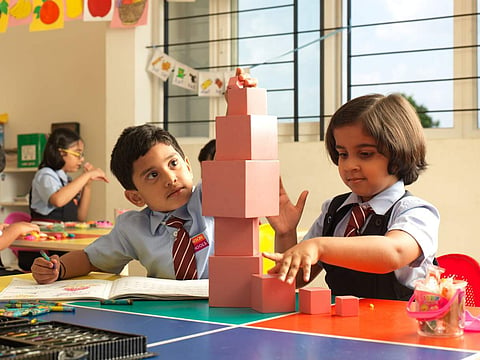

It is quite common these days for corporate companies to have workshops and seminars to train employees on gender equality. But it isn’t often that we see a see a complete change in one’s attitude towards women. There are deep-rooted biases that always remain. Dr Saundarya Rajesh’s initiative MITR — Men Impacting Trust and Respect hopes to address this very problem by changing attitudes at a very young age. Excerpts...
How important is it for men to be gender champions?
The Indian workplace has a stark minority of women. You have about 16 per cent women. The reasons are many — women are late entrants into the workforce, not all workplaces are safe for women, they take more breaks than any of her counterparts in the world. Change can only happen when men become champions for women. It’s almost entirely in the hands of men to make a difference.
How does MITR help?
We wondered what it would be like if a young boy could look at his female classmate and see what Indian women have gone through several centuries and what brought them here and what it means to let go of the small biases. That was the seed for MITR. We hope that through our programmes, these boys become aware of the problems that women face and that they grow up to become greater champions of women.
What does the programme include?
MITR is a three-day training programme for boys of class VIII to XII. They get to learn about gender intelligence, unconscious biases, history of Indian women professionals and how they can become gender champions. It is extremely experiential. We don't want to bore them with PPTs. The entire module is built focusing on games, roleplays, self-assessment activities, theatre and lots of stories. We have finished the programme in three schools and about 25 schools that have expressed their interest for the upcoming academic year.
What sort of training do the trainers undergo?
We have very interesting male models who share their experiences. We also have women trainers who share their perspectives. Both male and female trainers undergo training and are familiarised with all the questions that boys of that age might have. This is the age when boys develop the wrong impression about the opposite gender. Even at that young age, boys have deep-rooted patriarchal mindset. MITR provides them with powerful inputs and facts that show them the opposite. We are influencing them to build trust and respect and become true male allies. We are expecting that this will also have a powerful playout in their early adulthood.
How do you expect this to translate to more women in the workforce?
The country will only develop if we have at least 30 to 40 per cent of women in the workforce. And that is happening now. We're not blaming men. It's just that they haven't been trained this way. We hope to create a new generation of male allies, who view women with respect, a sense of camaraderie and a certain sense of being one team, and not as foreigners who are invading their place in the workforce. This will ensure more women participation in the workforce and through that, India's GDP will definitely improve. That's the kind of future for which we are laying the seeds through MITR.
